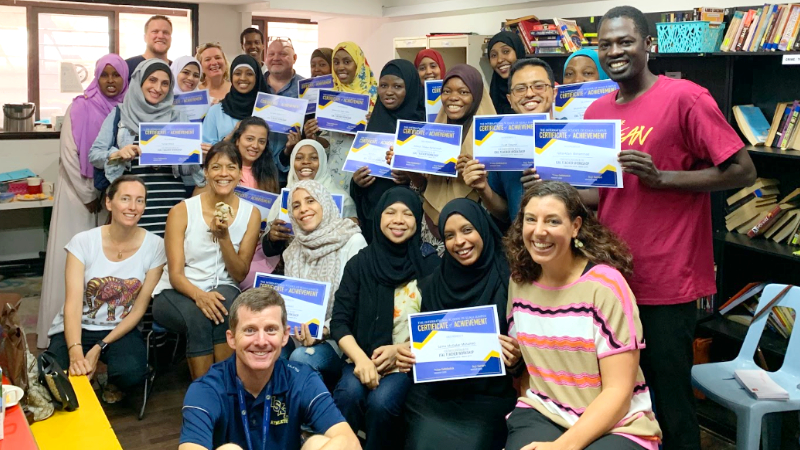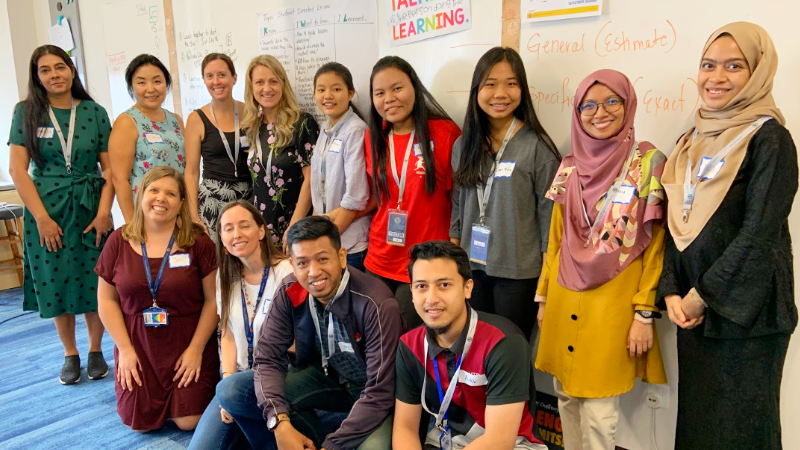
Earlier this year, The International School of Kuala Lumpur (ISKL), in collaboration with UNHCR (The United Nations High Commissioner for Refugees), celebrated the expansion of its ISKL Refugee Teacher Training program. The program was established by ISKL Elementary School Teachers in early 2017 to offer training for teachers at various refugee learning centers throughout KL.
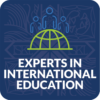

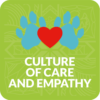 Pioneered by Ms. Suji DeHart, a former ISKL faculty member, this initiative aims to assist teachers at refugee schools who are responsible for teaching students aged between 4 and 21 years. The program started with a handful of ISKL teachers hosting about 40 teachers from the refugee community and grew as informal sessions soon became full-blown workshops. In January 2020, the program was further enhanced through a partnership with UNHCR. This allowed full courses to be delivered at ISKL to over 150 teachers and leaders from learning centers in the KL refugee community. ISKL is committed to contributing to the community through this partnership by sharing knowledge and resources to help upskill and support our fellow teachers. One of the school’s priorities is to encourage partnerships within the learning community and continuously build a culture of learning that is inclusive, intentional, and accessible to all.
Pioneered by Ms. Suji DeHart, a former ISKL faculty member, this initiative aims to assist teachers at refugee schools who are responsible for teaching students aged between 4 and 21 years. The program started with a handful of ISKL teachers hosting about 40 teachers from the refugee community and grew as informal sessions soon became full-blown workshops. In January 2020, the program was further enhanced through a partnership with UNHCR. This allowed full courses to be delivered at ISKL to over 150 teachers and leaders from learning centers in the KL refugee community. ISKL is committed to contributing to the community through this partnership by sharing knowledge and resources to help upskill and support our fellow teachers. One of the school’s priorities is to encourage partnerships within the learning community and continuously build a culture of learning that is inclusive, intentional, and accessible to all.
According to UNHCR records, there are over 46,600 registered refugees under the age of 18 in Malaysia. As Malaysia is not listed as a signatory on the 1951 Refugee Convention, these children do not have access to public education–refugee communities have taken matters into their own hands and set up their schools.
Due to COVID-19 and the recent Movement Control Order (MCO) in Malaysia, ISKL has had to move this teacher training program to an online, virtual class delivered on Saturday mornings. As part of the ‘classroom management’ and ‘creating engaging lessons’ courses, participants learn how to adapt existing lesson plans and support student engagement to fit online, hybrid, and in-person instruction with Standard Operating Procedures (SOPs). Each lesson is customized to the specific needs of each teacher and their classroom.
Ms. DeHart said, “Like every school worldwide, the refugee schools have been deeply affected by the pandemic. Moving to an online learning environment is difficult enough for teachers in a well-resourced school, with students that do have access to the internet and proper devices. Many of the refugee centers face terrific challenges getting training for their teachers to deliver online or hybrid classes and in getting devices for their students to access the learning. ISKL’s training program is doing all we can to help them face these challenges while learning from their successes at the same time”.
Ms. DeHart continued, “The refugee teachers come from a range of different centers and are truly inspiring. Many have limited practical classroom experience and some have no formal teaching qualifications but all are united in their desire to help their students learn and hopefully find a better life path through education”.
“Their students are refugees from countries across the globe. They come to school with disparate educational backgrounds, motivation levels, and a range of mother-tongues; all of which adds to the complexity of their role as a teacher. Add to the mix limited resources and training, and you have a pretty challenging teaching environment. This amazing group of refugee teachers, however, are undaunted and totally focused on how to best help their students learn. In addition to imparting subject content, their goal is to inspire learning and help students develop skills and behaviors which will support them in the future. Some of their students go on to take the academically rigorous International General Certificate of Secondary Education (IGCSE) which is an amazing achievement in itself without taking into consideration the difficulties their students face every day”, she added.
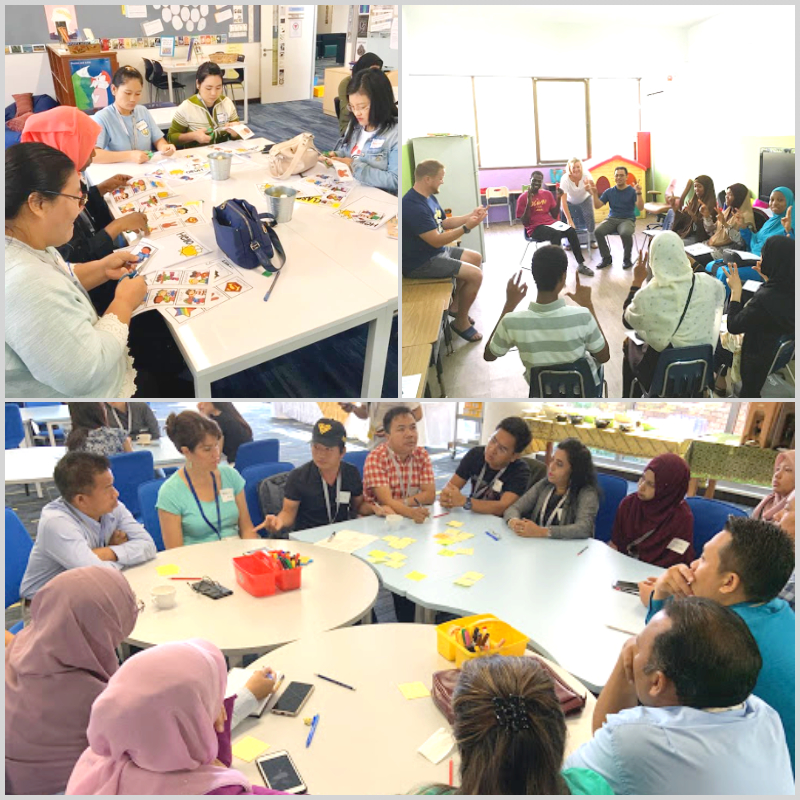 During these sessions, ISKL administrators and teachers also facilitate engaging discussions with the administrators of the refugee schools to address the questions, priorities, and needs of their schools. Topics covered include how to incorporate and manage technology in schools, strategies for supporting teachers, how to best manage communication with families, and how to navigate the SOPs. The information gained from this exchange of ideas will be used to further develop the Refugee Teacher Training Program and broaden its reach.
During these sessions, ISKL administrators and teachers also facilitate engaging discussions with the administrators of the refugee schools to address the questions, priorities, and needs of their schools. Topics covered include how to incorporate and manage technology in schools, strategies for supporting teachers, how to best manage communication with families, and how to navigate the SOPs. The information gained from this exchange of ideas will be used to further develop the Refugee Teacher Training Program and broaden its reach.
The last in-person training was held in February, before the COVID-19 pandemic. In that leadership session, the room was a buzz of activity as 60 administrators representing 37 different refugee schools took part in a collaborative exchange of ideas. Bushra Hassan, the principal of Fugee School, has been attending the training with her teachers since it began three years ago. She is very happy with the practical skills that the teachers at her school have gained and implemented in the classroom such as reader’s theatre and more effective summative assessments. “The teachers enjoy the training as they get the opportunity to practice and exchange ideas. The Fugee School has tremendously benefited from the teacher training”, said Hassan.
The impact is felt by ISKL faculty as well. Ms. Tina Casey, a High School Drama teacher at ISKL, is a volunteer with the program’s organizing committee and has found the time spent teaching teachers incredibly rewarding, “Education has the power to change lives and offer students hope and a way forward. Our role as teachers teaching teachers encompasses far more than how to teach subject content. The ultimate goal is to help shape thinking about how their students learn. We provide practical support and advice on how to motivate and empower students to become independent learners, collaborators, and critical thinkers. These are all highly valued skills that will last their students a lifetime”.
Ms. Casey adds, “The refugee teachers do an amazing job with limited resources. Their dedication and commitment to teaching is inspirational. Personally I have found it a hugely rewarding experience to share ISKL’s philosophy about learning, and help support these remarkable teachers inspire a generation of students who have had a tough start in life”.
From September to December, ISKL volunteers have committed their time and effort to keep this program running, regardless of the challenges faced. Trina Cobbledick, ISKL’s Director of Student Services, has been highly involved with the program since 2018. “Now, more than ever, it is important that we maintain the close connection of this partnership,” Cobbledick says. “The online teacher training platform will allow teachers in the refugee community to gain valuable teaching resources, learn how to use various educational technologies, and develop strategies to look after students’ social and emotional learning needs. It also creates the opportunity to network, exchange ideas, and collectively problem-solve around challenges. And even though ISKL teachers are facilitating the sessions, we are learning right along with this inspiring group of educators. The power is in the connections.”
ISKL sees the importance in maintaining the close connection that the school has established with teachers in the refugee community, despite the inability to meet face-to-face. Armed with a wealth of knowledge and resources, ISKL’s teachers are ready to share their expertise with colleagues in the community, while also receiving valuable feedback and a different perspective. Ultimately, the hope is that this program will continue to grow and thrive where it is needed, and make learning accessible to all.
